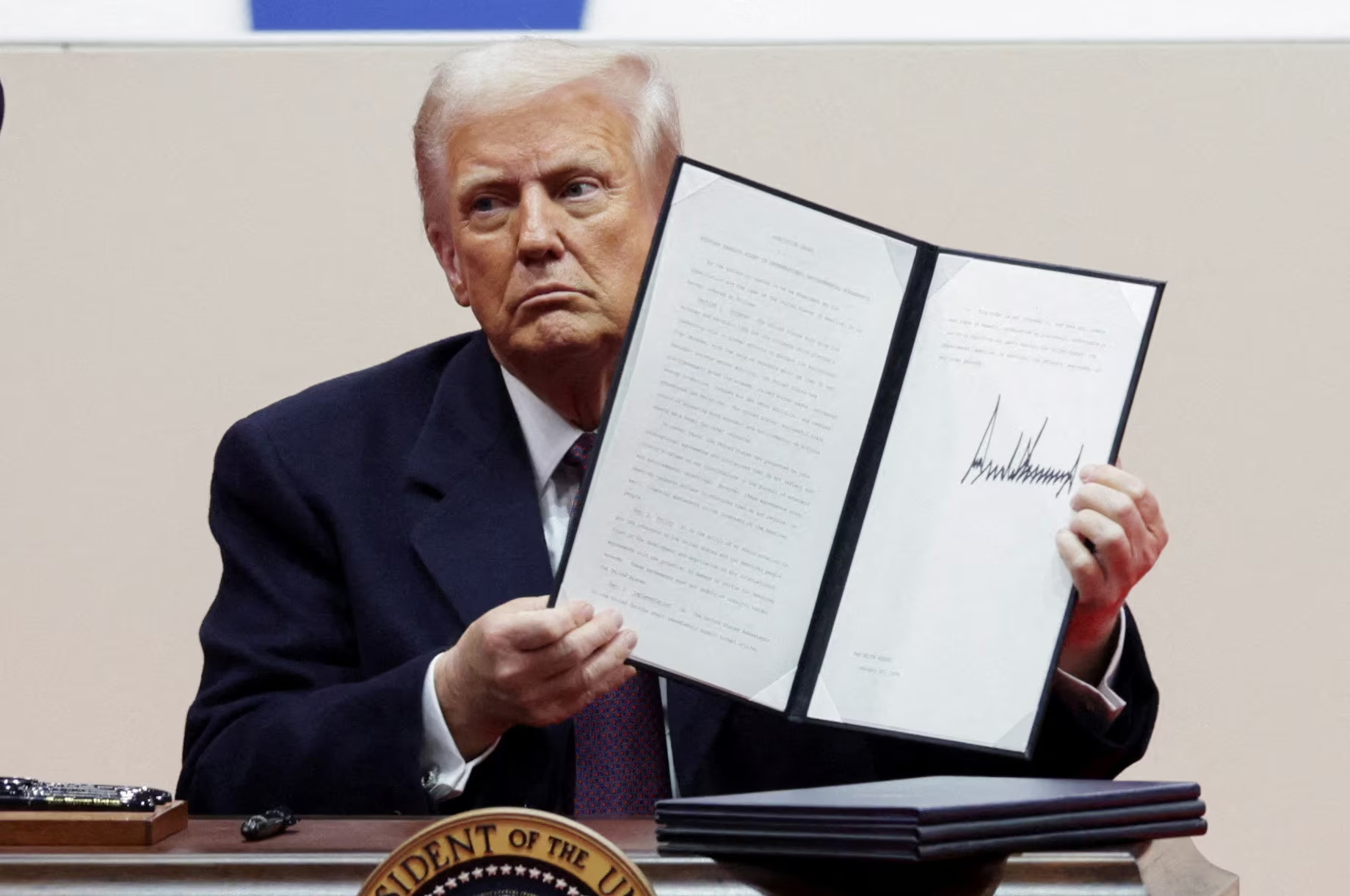U.S. President Donald Trump has announced plans to impose new 25% tariffs on all steel and aluminum imports. The tariffs will affect key trading partners, including Canada and Mexico, in a significant escalation of his trade policy. The announcement follows China’s retaliatory tariffs, which took effect last week, targeting $14 billion worth of U.S. products with a 15% tariff on coal and LNG and 10% on crude oil, farm equipment, and vehicles.
Speaking to reporters on Air Force One, Trump revealed plans to introduce reciprocal tariffs on Tuesday or Wednesday, stating they would take effect “almost immediately.”
“And very simply, it’s, if they charge us, we charge them,” Trump said, emphasizing his administration’s commitment to equalizing tariff rates.
Backlash From Canada And Other Trade Partners
The move on steel and aluminum has already drawn criticism from Canada. Doug Ford, Premier of Ontario, accused Trump of creating “constant chaos” that threatens economic stability. These new tariffs will be in addition to existing metals duties, further straining trade relationships. According to U.S. government data, Canada remains the largest supplier of aluminum to the U.S., accounting for 79% of total imports in the first 11 months of 2024. Meanwhile, Mexico remains a major supplier of aluminum scrap and alloys.
Impact On U.S. And Global Markets
Trump had previously imposed a 25% tariff on steel and 10% on aluminum during his first term but later granted duty-free quotas to several countries, including Canada, Mexico, and Brazil. Joe Biden extended these quotas to Britain, Japan, and the EU, yet U.S. steel mill capacity utilization has declined in recent years. The White House confirmed that the new tariffs would be in addition to existing duties, further complicating global trade dynamics.
Trump’s tariff policies have been widely criticized, causing market volatility and prompting concerns of further escalation. While Beijing has filed a complaint with the World Trade Organization, its response has been relatively measured, leaving room for negotiations. Analysts believe China was prepared for the tariffs, as it has also launched investigations into U.S. companies like Google.
French President Emmanuel Macron has also voiced strong opposition to the tariffs, vowing to go “head-to-head” with Trump on trade issues. In a CNN interview, Macron emphasized that the European Union should not be a priority target for U.S. tariffs. “Is the European Union your first problem? No, I don’t think so. Your first problem is China,” Macron said, warning that increased tariffs would fuel inflation in the U.S.
Taiwan’s Semiconductor Industry At Risk
Trump has also suggested potential tariffs on Taiwan’s semiconductor industry, repeatedly accusing it—without evidence—of harming U.S. businesses. In response, Taiwanese economic officials are set to visit the U.S. to discuss trade concerns. Reports indicate that Taiwan’s government and state-run petroleum companies are exploring ways to purchase more U.S. gas and oil to reduce their trade surplus, which Trump has cited as a reason for enacting tariffs.
With Trump signaling further tariff measures, global markets remain on edge. As trade tensions escalate, the economic impact on both U.S. industries and international partners remains uncertain.






